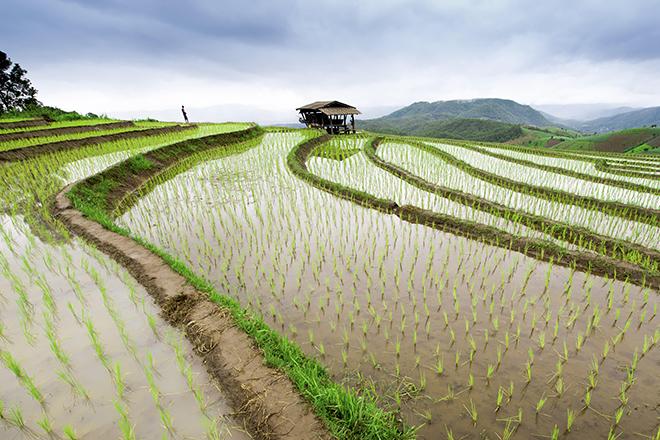Food and the Future Environment

Credit: Green Terraced Rice Field by Joney, licensed through Shutterstock, Used with permission.
Resource Description
The Future of Food is an introductory-level science course that emphasizes the challenges facing food systems in the 21st century, and issues of sustainability for agriculture and other food production activities, as well as the challenges posed by food insecurity and modern diets to human health and well-being. Topics covered include introduction to the coupled-system perspective, historical development of food systems, socioeconomic aspects of the food system, interaction of the food system with the Earth's environment including soil, water, biota and climate, and the future of the food system considering potential changes such as in climate, urbanization, and demography.


